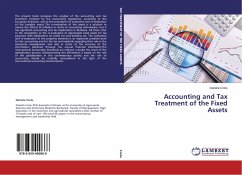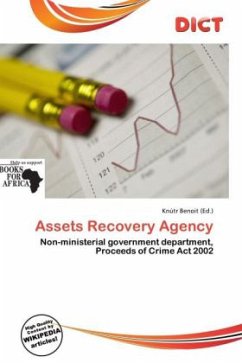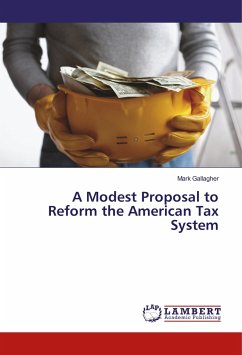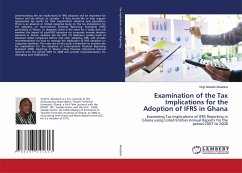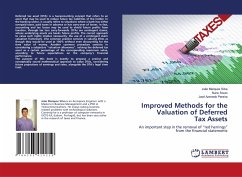
Improved Methods for the Valuation of Deferred Tax Assets
An important step in the removal of "red herrings" from the financial statements
Versandkostenfrei!
Versandfertig in 6-10 Tagen
27,99 €
inkl. MwSt.

PAYBACK Punkte
14 °P sammeln!
Deferred tax asset (DTA) is a tax/accounting concept that refers to an asset that may be used to reduce future tax liabilities of the holder. In the banking sector, it usually refers to situations where a bank has either overpaid taxes, paid taxes in advance or has carry-over of losses. In fact, accounting and tax losses may be used to shield future profits from taxation, through tax loss carry-forwards. DTAs are contingent claims, whose underlying assets are banks future profits. The correct approach to value such rights implies necessarily, the use of a contingent claim valuation framework. ...
Deferred tax asset (DTA) is a tax/accounting concept that refers to an asset that may be used to reduce future tax liabilities of the holder. In the banking sector, it usually refers to situations where a bank has either overpaid taxes, paid taxes in advance or has carry-over of losses. In fact, accounting and tax losses may be used to shield future profits from taxation, through tax loss carry-forwards. DTAs are contingent claims, whose underlying assets are banks future profits. The correct approach to value such rights implies necessarily, the use of a contingent claim valuation framework. One common practice consists in valuing DTAs as though they would be used at 100% without even discounting for the time value of money. Another common procedure consists in considering a subjective "valuation allowance", valuing the deferred tax asset as a certain percentage of the corresponding maximum value, according to future expectations on the company's financial performance. The purpose of this book is exactly to propose a precise and conceptually sound mathematical approach to value DTAs, considering future projections of earnings and rates, alongside the DTA's legal time limit.



